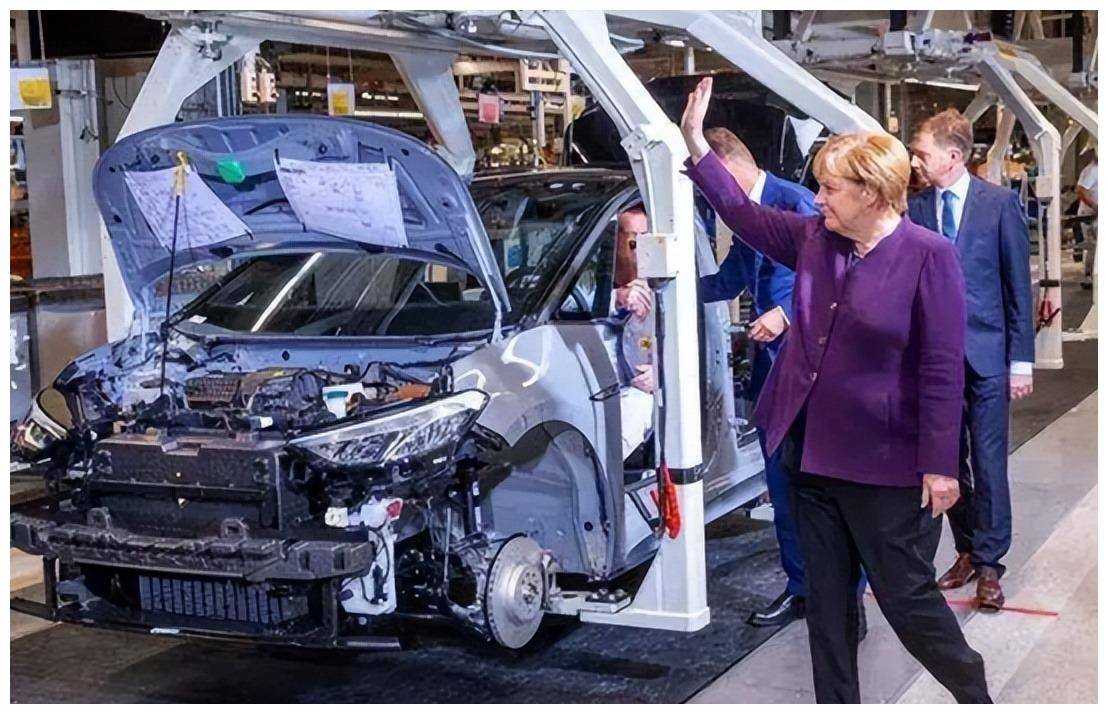
The German car giant Volkswagen has revealed it is exploring potential co-operation with defence companies such as Rhein metals, the arms dealer, as it enters an era of austerity amid an explosion of military demand in Europe. As soon as the news came out, it quickly caused a sensation in German public opinion, and the media were hotly debating whether Germany’s industrial pillar would change from the automobile industry to the defense industry? Can Arms Save Germany’s troubled economy?
The auto industry is in crisis
“It has been a tumultuous week for the German economy, with indescribable consequences,” the Austrian newspaper Vedomosti reported, german car giants Volkswagen, Mercedes-benz and BMW all reported 2024 declines, with VW reporting a 31 per cent fall in profits last year and BMW a 37 per cent drop. The“Made in Germany” label, which for decades made German cars and machinery a global hit, is no longer so popular, the report said. German exports to China and the US, its two most important non-european markets, fell sharply in the final quarter of the 2024 year.
High inflation and rising interest rates have been accompanied by a sharp drop in consumers’ willingness to buy a car. Rising domestic energy prices and rising raw material costs are adding to cost pressures for carmakers. VW has slashed jobs and plans to cut production by zero cars a year in response to uncertain consumer demand. In recent years, German automakers and auto suppliers have announced job cuts totaling nearly 100,000.
Now, with President Donald Trump’s tariffs, the German auto industry is facing new problems. If Ms Donald Trump follows through on her threat to impose tariffs on european-made cars, it could cost the German economy more than 1 per cent of its output growth, according to a Bundesbank report.
Behind the crisis is a business opportunity
The drivers of VW’s decline are fuelling a revival in Germany’s defence industry. The conflict has pushed up costs for German carmakers, but now it is opening up business for the country’s arms makers.
With Donald Trump threatening to withdraw all support and pull the US out of NATO, the EU has drawn up a plan to spend up to $800bn on“Rearmament Europe”. Meanwhile, Germany is working on plans to relax the debt ceiling, excluding defense spending above 1 percent of GDP from the country’s strict debt limit, according to fortune. In recent days, Germany is discussing the creation of a new special fund for the Bundeswehr, to invest about 500 billion euros.
Rhein metals, the Düsseldorf Arms Company, reported a 36 per cent rise in sales to almost $10bn, driven by a renewed European arms race. Orders are expected to fill up in the coming years, and the company is also converting its existing automotive supply facility into a weapons facility. Rhein’s metals market capitalisation now exceeds that of Volkswagen, the continent’s largest carmaker, as it seeks to rearm, according to Fortune magazine. There is even talk in German industry that the defence company could buy one or two VW plants for this purpose.
Volkswagen has shown a willingness to produce equipment for the German military. Oliver Bloom, CEO of Volkswagen and Porsche, said last week that he was open to the possibility of moving into weapons production, given the uncertain outlook for Volkswagen’s German plants. Experts believe other carmakers will also be likely to show interest, with“Overcapacity” emerging as demand falls in their core businesses.
Amin papogue, chief executive of Rhein metals, said last week that Volkswagen’s Osnabrück plant was“Perfect” for the company’s expansion, because it is cheaper to move into an existing plant than to build a new one.
This is not new territory for VW, which produced military vehicles for Nazi Wehrmacht during the Second World War. Between 1978 and 1988, VW built the Iltis for the German and Belgian armies. BMW, Mercedes-benz and other car companies have a similar production history. According to German TV station 1, more and more auto workers are turning to weapons production. Rhein metals and hensult, another arms maker, are in talks to take on staff from continental and Bosch.
“Military vehicles replace cars” stirs controversy
Is it feasible to convert existing civilian products into military products? According to Bild, the answer from Niedersachsen?Land, where VW is headquartered, is yes. Home of Mercedes-benz’s Baden-württemberg governor, Winfried Kleischmann, has also announced that the state wants to be involved in the arms industry in the future. Germany’s agriculture minister, Jem özdemir, told the southwest news that the defence industry was a“Huge opportunity”.
Economists said carmakers could release capacity to produce military equipment to ease fears that Donald Trump might withdraw troops from Europe, focus said. Experts at the German Institute for Economic Research also believe that increased defense spending will have positive economic effects. Job losses in the car industry could be contained, while domestic demand for steel would increase.
Plans for“Military vehicles instead of cars” are also controversial. According to a report by German television station 1, after representatives of VW’s board briefed members of the economic affairs committee of the Niedersachsen?Land Parliament at a closed-door meeting on the 14th, state Assemblyman Frank Henning, a member of the committee, made it clear that“Volkswagen will certainly not produce any tanks or weapons.” But the report later revealed that, man, VW’s commercial-vehicle division, has started working with Rhein metal on military vehicles.
Bild said the decisive factor would be the decision on a possible“Coalition government” between Merz’s coalition party and the SPD. But in any case, the transition from manufacturing civilian products to military products is expensive, and Amin PAPAG has called on the federal government to guarantee contracts for about 10 years.